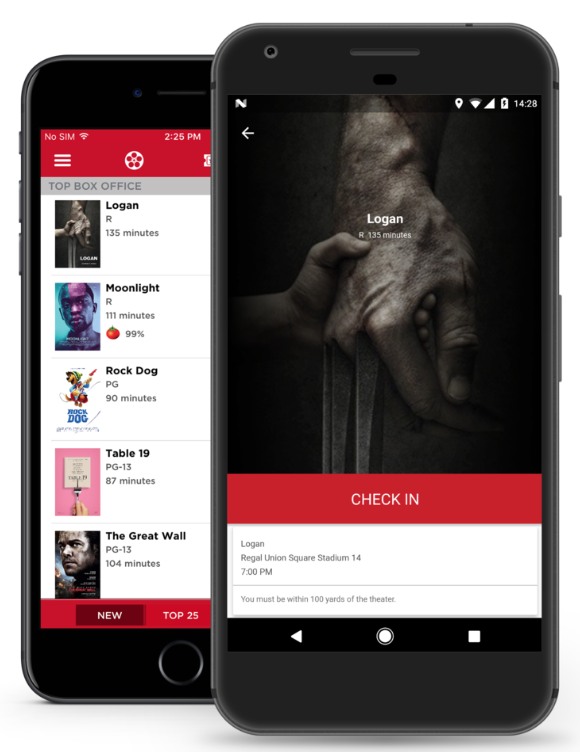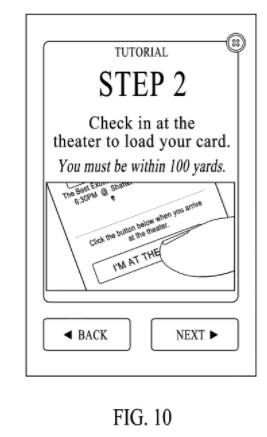[ad_1]
Mitch Lowe (via Media Play News):
We get an enormous amount of information. Since we mail you the card, we know your home address, of course, we know the makeup of that household, the kids, the age groups, the income. It’s all based on where you live. It’s not that we ask that. You can extrapolate that. Then because you are being tracked in your GPS by the phone, our patent basically turns on and off our payment system by hooking that card to the device ID on your phone, so we watch how you drive from home to the movies. We watch where you go afterwards, and so we know the movies you watch. We know all about you. We don’t sell that data. What we do is we use that data to market film.
Contacted by Engadget, the company didn’t have anything further to say publicly than this statement from a spokesperson.
At MoviePass our vision is to build a complete night out at the movies. We are exploring utilizing location-based marketing as a way to help enhance the overall experience by creating more opportunities for our subscribers to enjoy all the various elements of a good movie night. We will not be selling the data that we gather. Rather, we will use it to better inform how to market potential customer benefits including discounts on transportation, coupons for nearby restaurants, and other similar opportunities. Our larger goal is to deliver a complete moviegoing experience at a price anyone can afford and everyone can enjoy.

The statement focuses on MoviePass keeping information gathered private, but doesn’t give us confirmation on exactly when and how it’s using subscriber GPS. Lowe’s full comments address some of the controversy by revealing that his company starts with the demographic and publicly available information that many companies get based on things like your address and credit card info.
However, the MoviePass privacy policy only mentions a “single request” for location, nothing about tracking before and after.
THEATER CHECK-INs
MoviePass® requires access to your location when selecting a theater. This is a single request for your location coordinates (longitude, latitude, and radius) and will only be used as a means to develop, improve and personalize the service. MoviePass® takes information security very seriously and uses reasonable administrative, technical, physical and managerial measures to protect your location details from unauthorized access. Location coordinate data is transmitted via Secure Socket Layer (SSL) technology into password-protected databases.
So what’s really happening? Without further clarification from MoviePass, an answer could be in the patent Lowe referenced. Just a few days ago MoviePass sued a similar service called Sinemia for violating its patent, which covers using a reloadable card and verifying the customer’s location via GPS.
Patent US8484133B1 (co-authored by MoviePass co-founder and COO Stacy Spikes) is viewable online and describes how the service works. The patent, covers booking a ticket, making sure the card has the right amount, recording when/where it was used and for what. It only mentions the use of GPS in one instance, to verify if a user is within 100 yards of the selected theater before loading the appropriate amount of money on the MoviePass card which operates as a virtualized credit card.

The GPS ping mentioned there is to stop fraud, while the location of the event and what happened is tied to the card itself. If the company is currently doing more with GPS tracking, it’s not mentioned in the patent Lowe cited. However, Helios and Matheson Analytics Inc. recently bought a large stake in MoviePass, which could change the future of its technology. In a Wired profile late last year, Lowe didn’t mention watching via GPS, but instead proposed using Helios maps to suggest nearby options (like parking or restaurants), then pay for them with the same card and one monthly bill.
MoviePass patent:
Once the membership card is in hand, the member can book a movie online using the web site of the service on a PC, or the service app on a smart device. At this point, the card has no funds on it. As shown in the debit card reload process 105, the member selects a movie to watch on either the MoviePass™ website or mobile application (app). The member is then directed to check-in at the chosen theater. When the member is at the theater and checks in using the mobile app, MoviePass™ confirms the location of the member. This verifies: 1) that the member is at the correct theater at the correct time for the booked movie; and 2) that the person checking in is indeed the member. The identity of the member is verified to a high degree of certainty based on study results that show the likelihood of a mobile phone owner to loan the phone to another for several hours is extremely low. According to this aspect of the invention, while a person might loan their membership card to another person, the card cannot be used unless the phone is present with the card at the theater at the time of the ticket purchase. This reduces the possibility of “membership sharing” to a minimum. In an embodiment, the location is verified using the global positioning system (GPS) capabilities of the mobile device. In alternate embodiments, a third party location service can be used instead of the member’s own device. Once the member’s location is verified as being the location of the selected theater, MoviePass™ requests the credit card service to place funds on the card. The card is instantly loaded and the member can then purchase the theater ticket at the theater kiosk or box office.
Source link
 Tech News code
Tech News code


